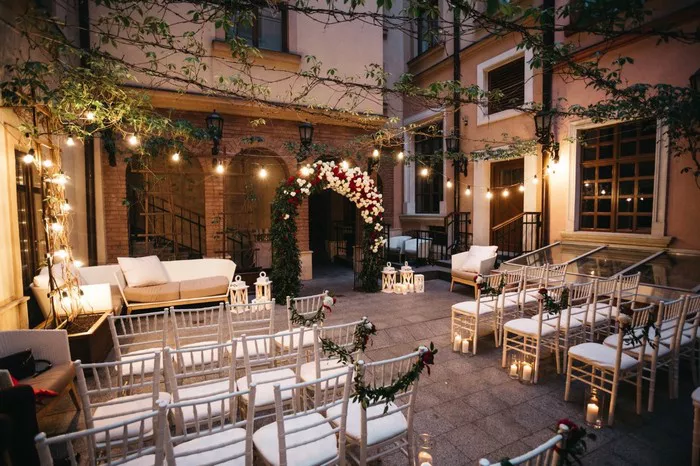Weddings in 2025 have undergone a striking transformation, moving far beyond the virtual ceremonies popularized during the pandemic. According to the 2025 Nuptial Tech Report, 83% of modern weddings now feature at least three major technological components, ushering in a new era of hybrid celebrations that blend digital innovation with time-honored traditions.
Augmented Reality Adds a Magical Touch
One of the most captivating additions to the contemporary wedding scene is augmented reality (AR). Increasingly, couples are using AR apps to enhance their ceremonies and receptions with immersive, interactive experiences. From seasonal digital floral arrangements projected throughout the venue to animated narratives of the couple’s journey, AR is helping create uniquely memorable moments.
Some weddings are now equipped with AR guest books, where messages appear as holographic displays, or facial recognition systems that greet attendees with personalized welcome visuals.
Blockchain Brings Weddings Into the Web3 Era
The integration of blockchain technology is redefining how couples commemorate their big day. Digital wedding certificates—minted as non-fungible tokens (NFTs)—are becoming a popular complement to legal documentation. These often feature bespoke digital art celebrating the couple’s union.
Beyond certificates, some couples are also offering limited-edition NFT photo albums as guest favors, adding a tech-savvy twist to traditional keepsakes. More practically, blockchain platforms are being used to store wedding videos securely, ensuring long-term accessibility and preservation across generations.
AI Enhances Personalization and Planning
Artificial intelligence is rapidly becoming an indispensable tool for personalizing the wedding experience. AI-powered concierges now manage guest inquiries via text message, streamlining communication throughout the event.
Advanced algorithms also play a role in seating arrangements, analyzing guest profiles to create harmonious tablescapes. In a more creative application, generative AI tools are being used to compose personalized wedding songs and even assist couples in crafting heartfelt vows.
Technology Expands Accessibility
Perhaps the most profound impact of wedding technology is in improving accessibility. Real-time translation apps are eliminating language barriers at multilingual ceremonies, while AR captioning systems provide live subtitles for speeches and toasts.
Innovations like haptic feedback systems allow guests with hearing impairments to feel the rhythm of the music, and some venues are now offering virtual reality (VR) options for loved ones unable to attend in person.
Tradition Meets Innovation
Rather than replacing cherished customs, technology is evolving them. Today’s digital weddings are more inclusive, personalized, and immersive than ever before, offering a broader range of guests the chance to engage with the celebration in meaningful ways.
As technology continues to advance, it’s not diminishing the magic of traditional weddings—it’s enhancing it. The digital wedding experience reflects a new chapter in matrimonial history, one where innovation and love walk hand in hand.


